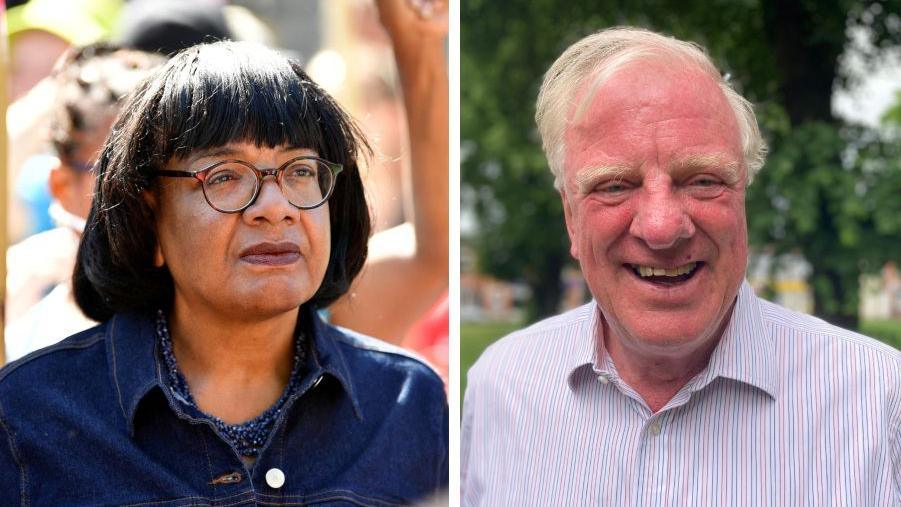'When she said enough is enough, it should have been enough'
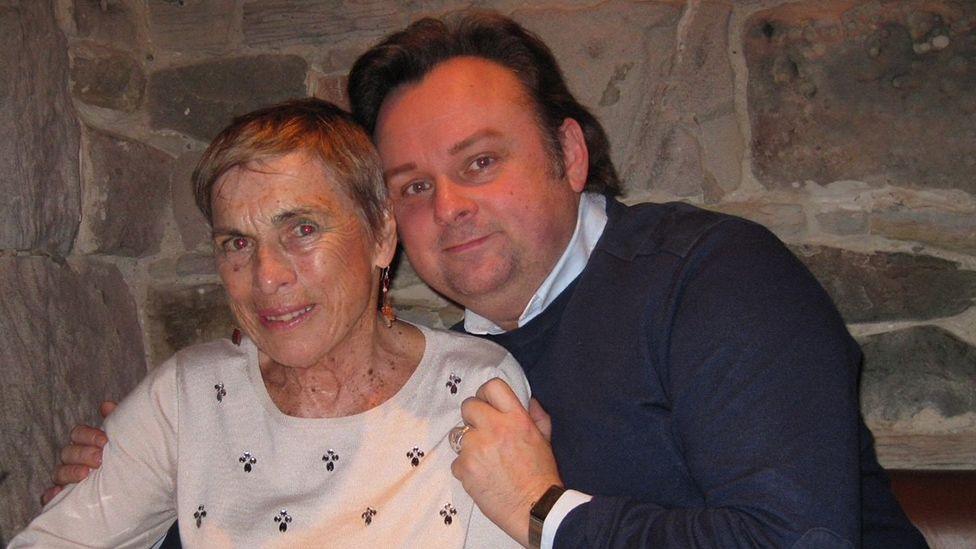
Justian Hansen says his mother Mary's death was "horrible"
- Published
Justian Hansen remembers his mother Mary as gregarious and sporty, a keen tennis player.
Mrs Hansen, from Barnard Castle in County Durham, "loved life" and travelled the world with her husband Noël, he says.
But Mr Hansen is haunted by the memories of his mother’s agonisingly painful death from cancer in 2021 at the age of 82. He says the experience of her final few weeks has made him a firm supporter of legalised assisted dying.
"When she said 'enough is enough', it should have been enough," he says.
"What came the week, ten days, after - that was horrible."
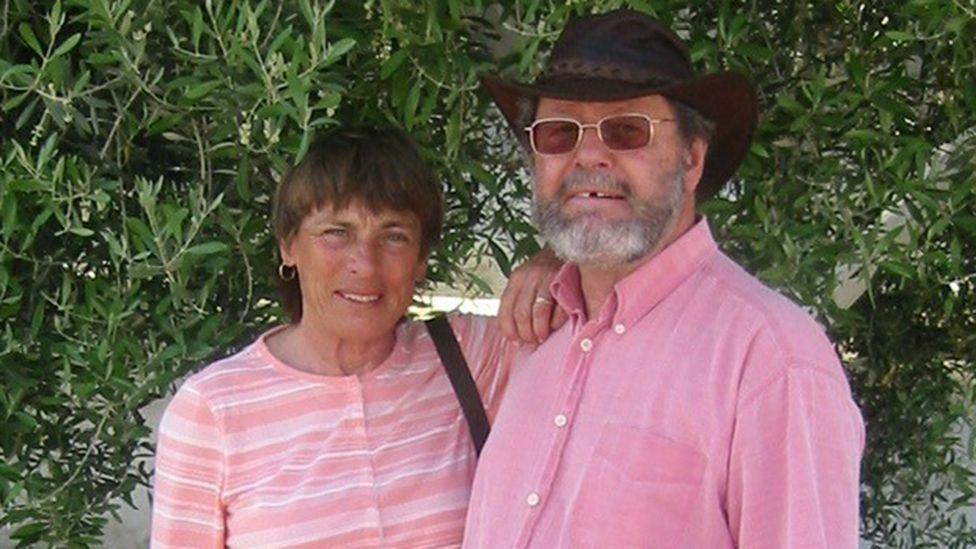
Mary Hansen travelled the world with her husband Noël
On Friday, MPs will vote on the second reading of a private member's bill which, if passed, will allow terminally ill patients to request assistance to die.
Critics fear it will mean elderly and vulnerable patients facing pressure to end their lives, though supporters of the bill say it contains protections against coercion.
Naomi Craven, from North Shields, says the experience of her father, Ray, illustrates why the law needs to change.
The 70-year-old retired college lecturer started struggling to eat and speak. In 2021, he was diagnosed with motor neurone disease, which is rapidly progressing and ultimately fatal.
Ms Craven says her father would have much preferred to have had an assisted death in the UK but, under the current law, that was not possible and he had to travel to the Dignitas clinic in Switzerland, accompanied by his wife and daughter.
"For him at that point it was very, very clear that, if he wanted a dignified death in a way of his choosing, an assisted death would be very much the option he wanted," she says.
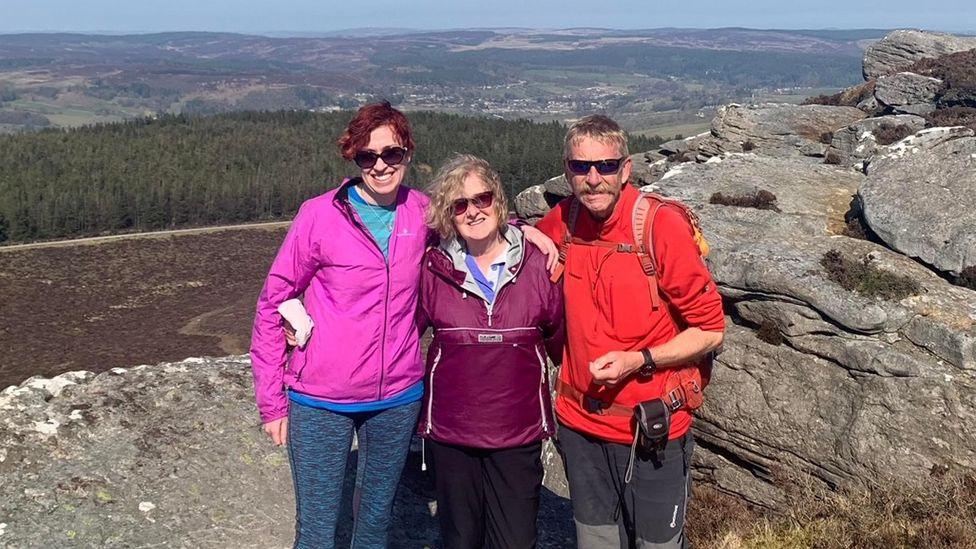
Ray Craven travelled to Dignitas with his wife, Janice, and daughter, Naomi
"My dad was a proud Newcastle man so I think leaving Newcastle for the last time was very, very difficult for him," Ms Craven says.
"And he was very, very unwell on the journey and that was quite traumatic for us to watch.
“Obviously, if he had that option in this country he would have been able to have had a more dignified death than even the one he had, and would have had the option to die at home surrounded by his family."
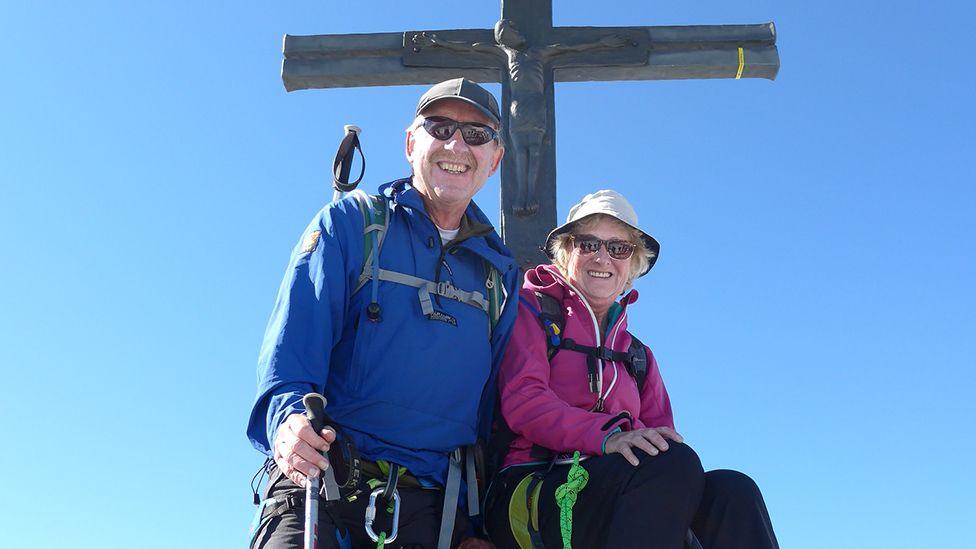
Ray Craven was a "proud Newcastle man", his daughter says
But the Bishop of Newcastle, the Right Reverend Helen-Ann Hartley, warns the bill carries risks.
"If we open the door to assisted suicide then that is not a door we can shut and we have made a fundamental change in society in attitudes towards what it means to be human, what it means to live and die well," she says.
Instead there needs to be "proper investment" in palliative care, she adds.
Former Paralympian, Baroness Tanni Grey-Thompson, who lives in Stockton on Teesside, is also opposed to the plans, saying she is particularly worried about the impact on people with disabilities.
"Health and social care is on its knees. The NHS is on its knees," she says.
"Changing the law might save money but it completely changes our relationship with society.
"I really worry that it will make disabled people feel they have no choice but to end their lives."
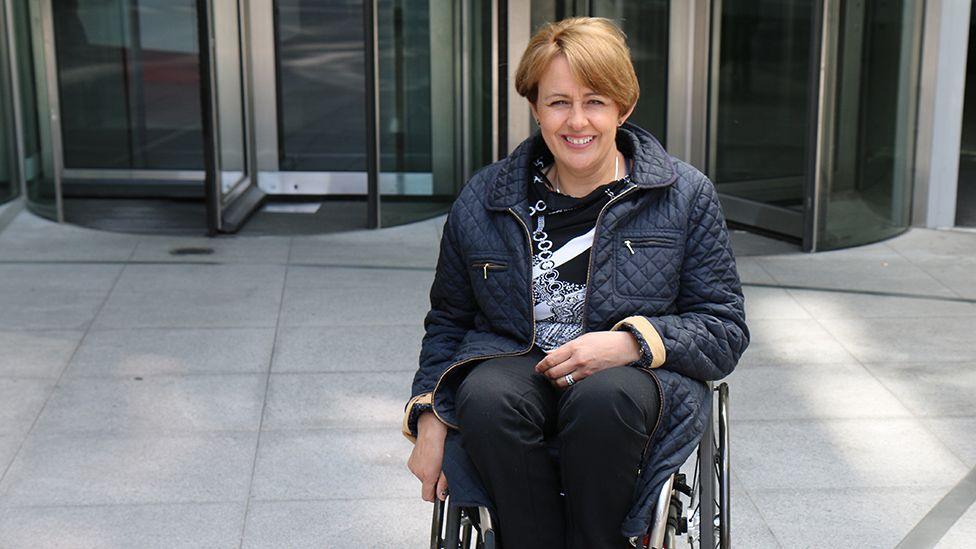
Baroness Tanni Grey-Thompson says a change in the law could pose a risk for people with disabilities
Follow BBC North East on X, external, Facebook, external, Nextdoor and Instagram, external. Send your story ideas to northeastandcumbria@bbc.co.uk.
Related stories
- Published24 November 2024

- Published20 November 2024
